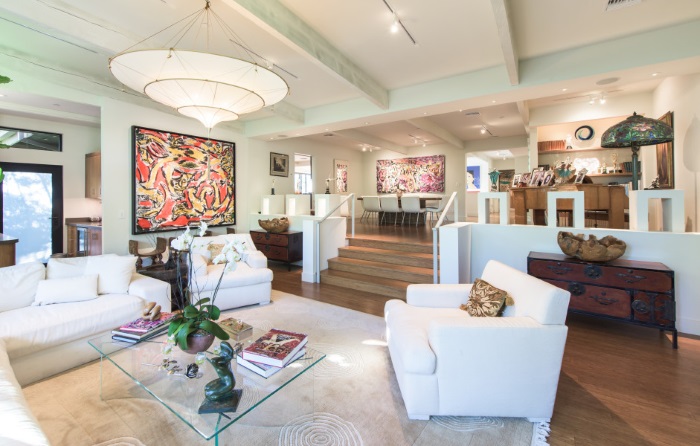Who wouldn’t want to build their own home? Ignoring the time, labour, cost, potential to push a relationship to its very limits and the infinitesimal possibilities of things that could go wrong, it’s a dream many share. We’ve probably all at least imagined it, but how does one even begin?
As anyone who’s attempted the task will surely tell you; it’s no small feat, but the eventual payoff is huge.
To offer an insight, we’ve prepared a list of 10 tips to help you on your way.
Budget!
Work out your total budget before you do anything – that includes buying land or paying architects. Assess your savings, consider how much equity you have in your current home and calculate your total borrowing capacity; altogether, this will give you a realistic picture of what you can afford.
It’s extremely important to be realistic from the very outset – running out of money mid-way is a pitfall that many self-builders encounter.
Once you’ve got a solid budget, consider setting aside a contingency pot, a rule of thumb is to keep a 10% buffer back in case of emergencies.
Choosing the right location
A home is only as good as its location, so it pays to get this part right.
First and foremost, don’t be putting the cart too far before the horse; many people get bogged down in the conception of a home before they’ve even found a suitable plot of land.
If you can’t help yourself, then be prepared to adapt or even set aside any well-thought out ideas down the line – the plot will, ultimately, dictate the final design, not the other way around.
Also of note; always purchase a plot of land with planning permission in place – too often do people fall in love with a plot at first sight only to discover that they can’t actually get permission to develop it.
Watch out for potential money pits
Approach any project with caution before giving the go-ahead. Bring in experts if you have to, assess geographical reports, judge environmental hazards – you don’t want to be caught having spent a huge amount of money on a project only to find out that the land on which it is located is sinking, eroding, or liable to flood.
Plan and scheme
It pays to be prepared.
What are you looking to get built? Some form of dark, imposing tower? Your own detached self-sufficient eco-palace? Maybe a mountainside art-deco masterpiece?
Big – small, costly, cheap, whatever it is you’re looking at building you’re going to need a project brief.
Whether you’re recruiting the aid of a designer or doing it all yourself, begin by gathering elements of design that you like. Gather examples of things like exteriors, landscaping that catches your eye, interior layouts, finishes – anything that will give you and your team a better idea of what direction to go in.
Again, it bears repeating, (should you employ an architect) stress that your budget is sacred – you should be designing to the budget, not the other way round.
Stay on the neighbours’ good sides
Nobody likes new-builders rocking up and setting up shop on their previously quiet neighbourhood, indeed, it can often cause a lot of contention.
It can pay in the long run to try to negate this, so move to explore and introduce yourself, shake hands and meet people, illustrate clearly that you’re going to be their neighbour, when everything has quietened down.
Get the best deal
Play the markets. Don’t just heedlessly accept every price that’s thrown your way, look around and get quotations from competitors – drive them against each other. You will find that a lot of merchants and suppliers will be willing to offer a great deal of leeway when it comes to bargaining.
Order things in advance
Be aware; many resources and materials will have a long lead-in time. Many self-builders underestimate this, then get stuck with significant delays to their project. To avoid it, order items in good time and properly research everything you order (keep track of every due date). Idle time on site can be seriously detrimental, especially if you begin to lose labour.
Communicate – it will be essential
Do not be afraid to communicate openly and honestly with everyone involved – it will be essential. If your opinion on something is required, do not hold back; it helps no one to beat around the bush or to be two-faced in your approach to the design, even if you want to perhaps spare someone’s feelings – don’t.
Don’t obsess about an end date
Whilst sticking to the plan is important and delays are bad, don’t tear your hair out if you move towards missing a deadline. Aspirations are understandable, but unrealistic expectations will do you nothing but harm.
Setbacks are bound to happen – the entire process isn’t going to go wholly to plan or smoothly. In many respects you simply can’t avoid or control this, you can only control how you react to said setbacks. Set deadlines, but plan for the unexpected and don’t freak out if you can’t meet them.
Maintain a sense of humour
The whole business is dreadfully serious at face value and some of the nightmarish stories you hear about failed builds and plans running horrendously over-budget are liable to push even the most psychological stable person towards tipping point. It might sound silly, but maintaining an optimistic perspective, especially when things go wrong, might just save you your sanity, your marriage, or both.!









